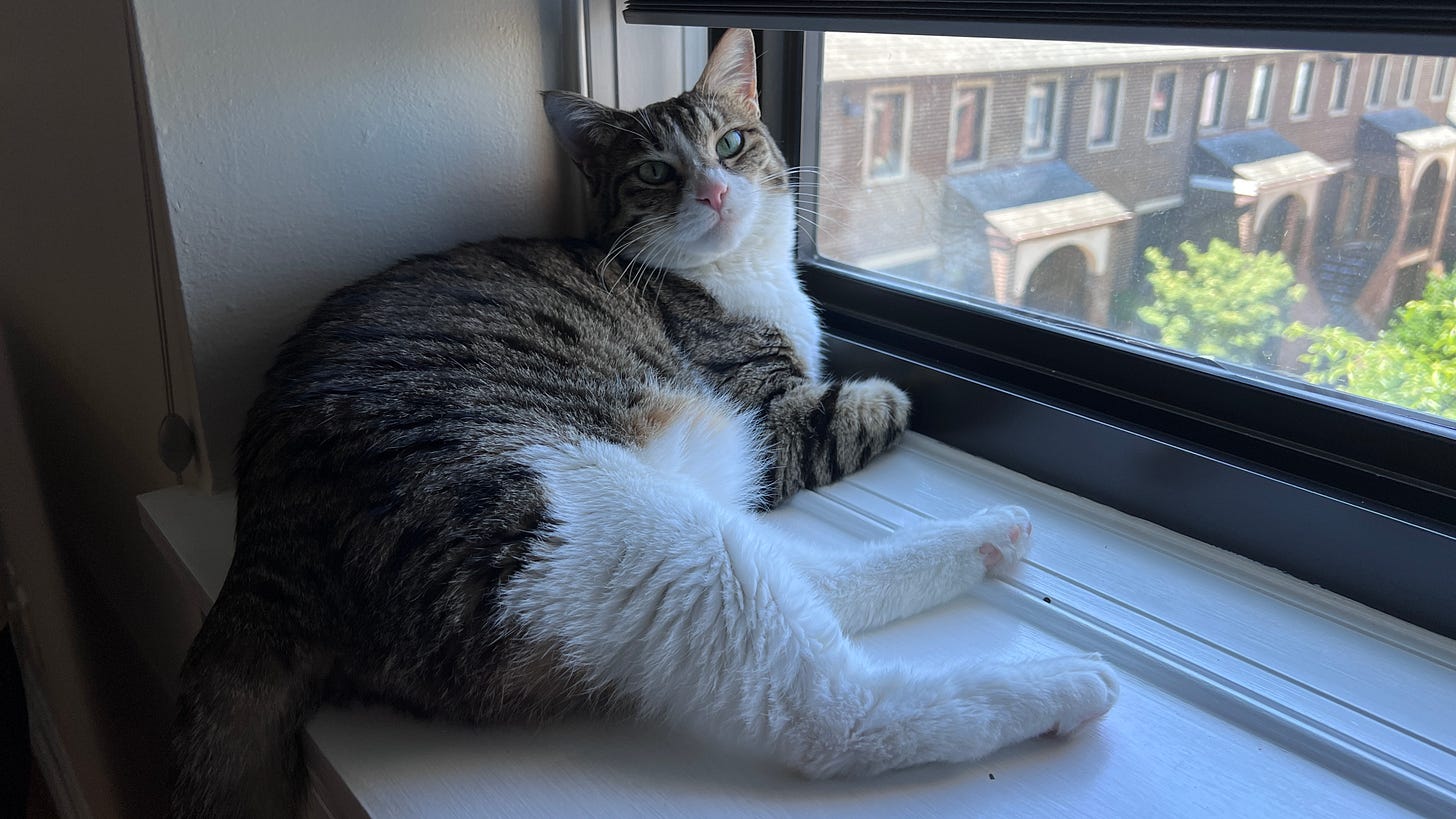Another Year, and the Loss Still Stings
Today is the 6th anniversary of the passing of NPR photographer, David Gilkey
Greetings from Washington, D.C. My Cape Cod chapter has ended, and I am back in my old digs in D.C. I have a lot of work to do to get all my stuff back here and get organized, but Squeak has unpacked and is settled in.
June 5 is difficult for my first day back in D.C. Six years ago today I was standing on the bank of the Potomac River in Georgetown enjoying a cookout with friends. Then, I received a text message from my former Afghan producer who was still working in Kabul.
“Something happened,” the first message said.
“We lost David,” the next message read.
He was referring to David Gilkey, the NPR photographer who was on assignment in Afghanistan.
I froze. Having spent two-and-a-half years in Afghanistan, I knew that anything could happen at any time. Friends were killed when I was there. Friends were killed after I left.
But losing David was altogether different. He had covered the war from its earliest moments in 2001. He had spent more time on the ground in Afghanistan than many service members, and he had seen more action than many service members.
Through it all, he kept a level head. He wasn’t an adrenaline junkie. He didn’t seek out danger. He was committed to the story. He felt he owed it to the Americans and Afghans fighting and dying to make sure the world knew their plight.
It was a commitment that he knew was risky. The risk grew after 2014 when U.S. forces largely handed over security responsibility to the Afghans and embedding with U.S. forces became harder to do. Instead, to see the fight, you had to embed with Afghan forces.
In the spring of 2014 when I was still in Kabul, David spent a month with me at the NPR bureau. We were covering the 2014 presidential election and squeezing in some other stories about Buzkashi, displaced persons, and the Nowzad animal shelter and clinic.
During that month, there were numerous attacks in Kabul targeting westerners — often election workers and monitors. Friends, such as photographer Anja Niedringhaus, were killed.
It was a disturbing trend that had started in January of that year with the attack on the Lebanese Taverna restaurant. Foreign civilians working in Kabul had become a target rather than unlucky victims of being in the wrong place at the wrong time.
David and I discussed whether it was going to be possible to continue reporting in the country the way we had. We spent nights trying to make sense of the changing landscape, of the loss of more friends. We discussed whether it was going to be safe to embed with Afghan forces once the U.S. military stopped supporting embeds.
Our consensus at that time was that we did not trust Afghan forces to keep us safe during embeds. Not that you were safe on embeds with U.S. forces, but you trusted their capabilities, their commitment, and their medical evacuation abilities if anything happened. The same could not be said of the Afghans.
It was not an issue for me as I closed the NPR Kabul bureau in December 2014 when the war theoretically transitioned to Afghan responsibility.
However, the story continued for David. He continued making his annual reporting trips. The 2015 trip was challenging. Coordinating embeds with remaining U.S. Special Forces who were mentoring Afghan forces was complicated and unreliable. The 2015 trip yielded a few stories, but they were tough to come by and risky.
Before the 2016 trip, David and I discussed the risk of going back to embed with Afghan forces. He felt obligated to continue telling the story, but he was wary about the danger. He also worried whether it was going to be possible to get material that was compelling enough to justify future trips.
I worried before he departed on that trip that he and the rest of the team might feel the need to push the envelope — beyond the “normal” journalistic drive — to get material that validated the time and expense and justified future reporting trips.
The first week or so of the trip, we kept in touch by text and email. He was anxious because plans kept falling through. The material they were gathering wasn’t up to expectations. Again, I worried that might drive taking more risks to get out and show what the Afghans looked like on the battlefield.
The morning of June 5, I sent David a text message to check in. It didn’t go through as an iMessage, so I assumed they were out of cell range working and I would hear back later. Except, I didn’t.
After the message from my former producer, I checked in with a friend at NPR to confirm whether it was true or just “fog of war” miscommunication. It was not. David was gone.
I won’t go into the circumstances, but suffice to say it was a risky trip to get material and it did not pay off.
There has been in a hole in my life since that day. I had only known David for four years at that point, but he had quickly become one of the most important people in my life. When I returned from Afghanistan, he was one of a handful of people I felt comfortable with and with whom I could speak candidly about my life and what I was going through.
I believe my journey over the last six years would have been different, been healthier, had David returned from that trip. Rarely a day goes by that I don’t think about him.
I am far from the only one. David touched everyone he met. She of us will gather today to remember him. We all feel his loss today.



